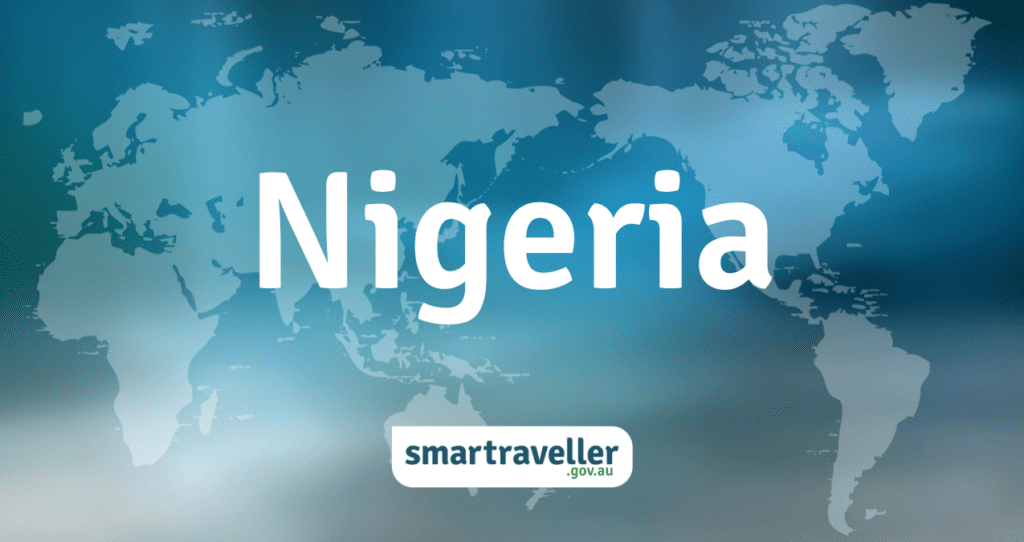Travel services in Nigeria are not reliable. Not all travel providers accept credit or debit cards. You should reconsider your need to travel and have back-up options.
Land borders
Avoid travelling over land borders to Nigeria. Nigeria’s land borders may open and close at short notice. Check if the specific border you propose to travel through is open at the time of travel. Most destinations bordering Nigeria also have a high travel advice level. If despite our advice you travel overland, read the travel advice of the destination you’re entering or exiting.
Driving permit
International Driving Permits aren’t recognised in Nigeria.
You must have a local driver’s licence.
Road travel
Driving in Nigeria is dangerous due to:
poorly maintained roads and vehicles
poor local driving habits
unpredictable pedestrians, including street vendors and beggars
poor signage
lack of working traffic lights
poor road lighting
high number of carjackings
Be alert to security threats, particularly in traffic jams and at traffic lights. Keep your doors locked and windows up at all times.
Avoid travel by domestic road transport between urban centres due to the high incidence of attacks on motorists by criminal gangs, bandits and terrorists. They may attempt to stop travellers with nails and branches on the road, fake breakdowns and injured people. If despite our advice, you decide to travel via domestic road transport, you should engage professional security for support and planning. Travelling in an armoured motor vehicle is the safest domestic road transport option.
Expect delays when you travel. This can include:
authorised and unauthorised police and military roadblocks
checkpoints
traffic diversions
parking restrictions
fuel shortages and queues
These will often happen in major cities and after dark.
If you can’t produce your identity documents, car registration or ownership papers, police may fine you or ask for a bribe.
If you’re in a traffic accident, nearby crowds may gather quickly. They may also overreact if they think you’re at fault or use this as an opportunity to assault you or steal from you.
Rental cars may be available but should be avoided as their maintenance record and insurance coverage cannot be assured.
More information:
Motorcycles
Motorbikes are banned in some cities – for example in Lagos. Check with your travel insurer if your policy covers you to ride a motorcycle.
Always wear a helmet.
Taxis and public transport
We recommend using car hire services that include a driver, organised through a major hotel or reputable security provider. Do not use local taxis and ride-sharing services due to poor safety standards and risk of petty crime. Don’t use public transport including bus and rail services, to travel both within or between cities.
Public transport is often unsafe, due to:
unqualified and uninsured drivers
poor vehicle maintenance
high speed driving
overcrowding
being targeted by criminal gangs, bandits and terrorists
Travelling in an armoured motor vehicle with professional security support is the safest option.
Sea travel
At sea or on ships in port, you may encounter:
Do not travel in the Gulf of Guinea or coastal areas around the Niger Delta. Criminals with speedboats and high-calibre weapons commonly target pleasure crafts, cruise liners, oil tankers, container ships and other large vessels in these areas.
The Nigerian Navy has limited capacity to respond to piracy. The International Maritime Bureau issues piracy reports.
Safety and reliability of some domestic and inter-country ferry services is a concern. Maintenance procedures and safety standards are not to Australian standards. If you travel on these services, insurance may not cover you.
Air travel
Domestic and international flights are often overbooked, delayed or cancelled with little notice.
Safety and reliability of some domestic airlines is a concern. Airlines may not have strict maintenance procedures and safety standards. If you travel on these airlines, insurance may not cover you.
DFAT doesn’t provide information on the safety of individual commercial airlines or flight paths.
Check Nigeria’s air safety profile with the Aviation Safety Network.
More information:
Source link : https://www.smartraveller.gov.au/destinations/africa/nigeria
Author :
Publish date : 2024-05-02 07:00:00
Copyright for syndicated content belongs to the linked Source.
